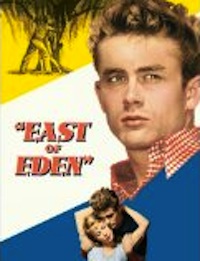I’m not one of these people who look through rainbow-color
lenses and sees shades of gay in everything that comes my way, at least I try
not to be. But I recently read East of
Eden by John Steinbeck, and what I interpreted was an inspiring, non-sexual
intimacy between Adam Trask and his Chinese cook/housekeeper Lee.
The main theme for the novel revolves on the translation of
the Hebrew word timshel, which appears in the Cain and Abel story in Genesis,
when God discusses sin with Cain. It basically means God gave man the ability
to choose between good and evil. That is the choice each of East of Eden’s characters face—as does,
ultimately, every person. The story puts forth the idea that no matter how
deep-rooted a person’s sin, there is always a chance for redemption. Thus, God
gave man the ability to overcome evil.
This beautifully crafted novel presents a modern version of
the Cain and Able story, where twin brothers (Caleb and Aaron) live with their
father (Adam), and Lee cares for the Trask family. It is clear that Adam is deeply in love with
Kate, the mother of the boys. But she abandons the family to become a
prostitute shortly after giving birth. For the seventeen years that follow, Lee
becomes mother, cook, confidant, money manager, and companion to the boys and
to Adam. Lee is unmarried, and shows no interest in women. The intimacy between
Adam and Lee grows to a point beyond friendship. It is as close to a gay
relationship as Steinbeck could write in his day.
The question that I’m struggling with is did the author
intend that relationship to be a romance, or am I reading much more into it than
he envisioned. Not matter what
Steinbeck’s intentions, I found both the story and the relationship between
Adam and Lee to be brilliant, one of the best reads I’ve had in years.












.jpg)